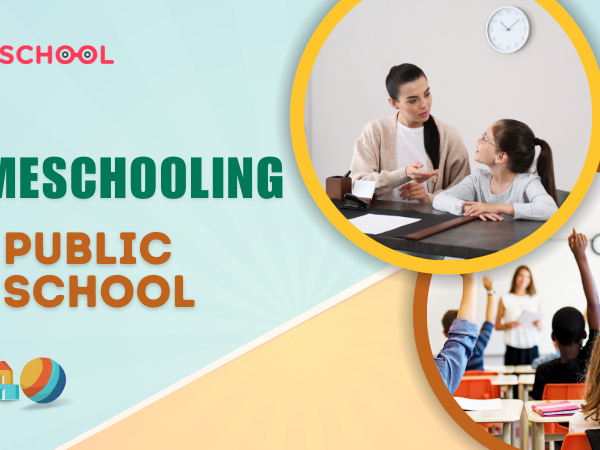Homeschooling has become increasingly well-liked as a substitute for conventional education in recent years. For a variety of reasons, including worries about the caliber of public schools and a desire for greater flexibility in their child’s learning path, parents are increasingly investigating this educational strategy. It enables parents to make all educational decisions for their children, including picking the curriculum and setting the daily timetable. We will delve into the world of homeschooling in this post, learning what it is all about, its advantages, difficulties, and how to get started.
Why Choose Homeschooling?
Flexibility in Learning
One of the primary reasons parents opt for homeschooling is the flexibility it offers. Children can learn at their own pace, and parents can tailor the curriculum to their child’s individual needs and interests.
Personalized Education
Homeschooling allows for personalized education. Parents can focus on subjects that align with their child’s strengths and interests, fostering a love for learning.
Family Bonding
Homeschooling also strengthens family bonds. Spending more time together can create lasting memories and build strong relationships.
Benefits of Homeschooling
Customized Learning
In a homeschooling environment, lessons are tailored to suit the child’s learning style, ensuring a deeper understanding of the material.
Enhanced Safety
In an era of safety concerns, homeschooling provides a secure learning environment, away from potential threats in traditional schools.
Also Read: How Homeschooling Works
Challenges of Homeschooling
Time-Consuming
Homeschooling requires a significant time commitment from parents, who must not only teach but also plan lessons and assessments.
Socialization
Critics argue that homeschooling may limit a child’s social interaction. However, with community programs and extracurricular activities, this challenge can be mitigated.
Getting Started with Homeschooling
Research State Regulations
Before embarking on a homeschooling journey, it’s crucial to research and understand your state’s homeschooling regulations, as they vary widely.
Choose a Curriculum
Selecting the right curriculum that aligns with your child’s needs and goals is essential for a successful homeschooling experience.
Establish a Schedule
Creating a structured daily schedule can help maintain a sense of routine and ensure that all necessary subjects are covered.
Also Read: How Much Does Homeschooling Cost In India
Conclusion
In conclusion, homeschooling is a viable alternative to traditional education that offers numerous benefits, including personalized learning, enhanced safety, and strengthened family bonds. While it comes with its challenges, with proper planning and dedication, homeschooling can provide a rewarding educational experience for both parents and children. Know more – The Real School
FAQs
1. Is homeschooling legal in all states?
Ans: Homeschooling is legal in all 50 states, but the regulations vary, so it’s essential to research your specific state’s requirements.
2. Can I homeschool my child if I’m not a certified teacher?
Ans: Yes, you can homeschool your child without being a certified teacher. Many resources and curricula are designed for parents without teaching credentials.
3. What are the costs associated with homeschooling?
Ans: The costs of homeschooling can vary widely, depending on the curriculum and resources you choose. Some materials are free or low-cost, while others can be more expensive.
4. How can I ensure my homeschooled child gets enough social interaction?
Ans: Homeschooled children can engage in social activities through community programs, sports, and extracurricular activities to ensure adequate social interaction.
5. Are homeschooled students at a disadvantage when it comes to college admissions?
Ans: Colleges and universities increasingly accept homeschooled students, focusing on their academic achievements, extracurricular activities, and standardized test scores.







